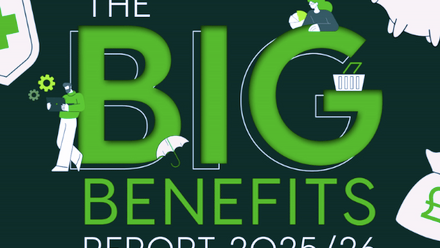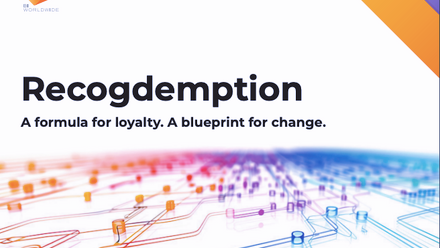Supporting employees through business and personal change: the role of social wellbeing

And it is just as important in the workplace as it is in our personal lives. In the office, it doesn’t just mean having beers on Fridays and a busy social calendar, but instead encompasses a culture of trust, feedback and communication.
Why social wellbeing is more important than ever
The pandemic has facilitated wide-spread change, with the limitation of usual levels of social interactions having an inevitable negative impact on our collective mental health. The Mental Health Foundation found that the number of people who are experiencing feelings of loneliness has risen from 10% in March 2020 to 26% in February 2021.
The strain of lockdown and restrictions on businesses has also meant that significant organisational change has had to be made to adapt to the limitations and new ways of working. This has led to increased anxieties around job security, burnout from longer working hours and extra strain from supporting furloughed employees.
Employers that lead the charge on prioritising and promoting social wellbeing as part of a larger wellbeing strategy within their companies will be able to see a reduction in absenteeism and presenteeism, increase in productivity, and an improvement in overall team mental health.
So, how can promoting social wellbeing help employees during times of change?
1. Validation of mental health concerns
If you’re struggling with your mental health during a time of extreme change, it’s easy to feel isolated and alone. If team members feel they’re able to share with others, they may be able to find valuable perspective from people who have faced, and overcome, the same challenges.
Our platform works in the same way to promote social wellbeing, as individuals become part of a community where they can both receive support and help others who may be earlier in their mental health journey.
2. Increasing resilience
Resilience is the capacity with which employees can handle the stressors and pressures of the workplace. Employees that feel well-connected with their team and who align with the core values of the company are often better equipped to handle any change that comes compared to those who work in siloes.
People are able to build resilience when they are given a variety of ways to express themselves, as well as a safe environment to do so. In addition to encouraging regular communication between managers and teams, such as one-to-one meetings and feedback sessions, it is important that a space is provided to workers who need to express in a different way.
3. Recognising crises and referring for further support
There is only so much support you can provide as a colleague, manager or HR leader. Social wellbeing is important in helping teams and mental health first aiders to recognise when someone needs further treatment as any changes in regular communication could signal potential risk.
On Togetherall, accredited professionals monitor the platform 24/7 to escalate any potential crises to the appropriate services and ensure that anyone who is deemed at-risk will receive the right care for them.
Social wellbeing as part of a larger benefits and support network
Having a comprehensive wellbeing strategy is important for any company that is committed to caring for their employees during any organisational or personal change. As social and mental wellbeing are so closely linked, ensuring that each employee feels cared for and a part of the culture is vital to boost their wellbeing longer term.
The author is Robin Lewitt, business development manager at Togetherall.
This article is provided by Togetherall.
Supplied by REBA Associate Member, Togetherall
Togetherall is a global community that helps to understand mental health better.







